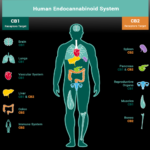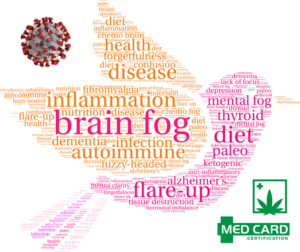
Cannabis for Arthropathy Gout/ Degenerative Arthropathy
Today’s topic: Can medical marijuana be used to treat gout?
- Can medical marijuana be used to treat gout?
- There is evidence that compounds in cannabis are effective at reducing the inflammation and pain caused by gout.
- Cannabis works with the body’s own innate healing systems.
- Marijuana strains and cannabis products come in a wide variety of formulas and delivery methods including non-intoxicating options.
Arthropathy gout, sometimes called degenerative arthropathy, gouty arthropathy or gouty arthritis, is the result of uric acid buildup in joints. For some reason, gout often attacks the big toe, however, gout also attacks ankles, knees, elbows, and thumbs. As the condition progresses it produces symptoms very similar to arthritis. Symptoms include joint inflammation leading to pain, stiffness, reduced range of motion, and even deromity of joints.
Gout most often affects middle-aged and older men and sometimes post-menopausal women. Susceptibility to gout can be inherited. However lifestyle choices can greatly increase the risk of gout. Some of the risk factors include poor diet, obesity, heart disease, diabetes, kidney disease, high blood pressure, high cholesterol, or glucose intolerance. Daily alcohol cosumption also greatly increases risk.
A healthy diet and proper exercise remain the best options to slow the progression of gout. However, many patients are finding success treating gout with medical marijuana and cannabis-infused products.
Medications prescribed for the treatment of gout include Zyloprim, Uloric, and Probenecid. Patients taking these drugs must be closely monitored to avert potentially damaging side effects.
Medical marijuana has been used for millennia to reduce inflammation and pain. Today, marijuana doctors around the world recommend cannabis therapy for some patients. Cannabis offers a safe, effective, natural alternative to pharmaceutical medication. Nationwide marijuana dispensaries offer an array of marijuana strains and cannabis-infused products.
More than 30 states now permit doctor-approved patients with a medical marijuana card to purchase or grow medical marijuana products containing THC. Some of those states have legalized the sale and possession of marijuana for all adults 21 and over.
Moreover, CBD produced from hemp is available to all. Anyone can buy CBD online without a medical marijuana card.
How does medical marijuana help treat gout?
Medical marijuana offers an astounding range of medicinal benefits. Moreover, marijuana is non-toxic and non-addictive, and produces no long-term side effects when used properly. There are even strains of cannabis (categorized as hemp) that are non-intoxicating.
Some of the ways medical marijuana helps treat gout:
- The inflammation-fighting and pain-relieving properties of cannabis are well-documented.
- Marijuana also improves circulation in some patients. This might help slow the progression of gout.
- Additionally, marijuana helps to reduce depression and anxiety in some patients. These conditions sometimes lead to apathy. Apathy can, in turn, lead to a poor diet and lack of exercise, both risk factors for gout.
Most pharmaceutical drugs target either inflammation, or circulation, or mood disorders, but not all three. And many over-the-counter and prescription drugs come with unwanted and sometimes long-term side effects.
How medical marijuana helps treat gout
So how does medical marijuana affect all of these symptoms and do so without dangerous side effects? In essence, cannabis produces active compounds that are very similar in form and effect to compounds produced naturally by healing systems in our own bodies.
The human nervous system produces signaling molecules we call endogenous cannabinoids. That just means cannabinoids that are produced by the body. The term is generally shortened to endocannabinoids or just cannabinoids.
The human endocannabinoid system (ECS) is the brain’s signaling system. When the brain detects an imbalance or injury it floods the bloodstream with particular endocannabinoids needed to correct the imbalance.
There are scores of different endocannabinoids with different functions. These natural cannabinoids relay instructions to individual cells by stimulating cannabinoid receptors of their outer surface.
The ECS is responsible for maintaining balance in several bodily systems including appetite, sleep cycles, moods, fear response, pain response, immune response, and so much more.
The female flower clusters of the cannabis plant produce resins that contain compounds very similar to endocannabinoids. We call them phytocannabinoids. Some cannabinoids can also be made in the lab. We call these exogenous cannabinoids (eg: dronabinol and Marinol).
Cannabis produces scores of phytocannabinoids. Each has the ability to mimic the effects of particular endocannabinoids to some extent.
Many medical marijuana experts believe that certain medical conditions such as anxiety and depression might sometimes be caused by a patient’s inability to produce sufficient endocannabinoids. They call this endocannabinoid deficiency.
Supplementing the human body with phytocannabinoids found in marijuana sometimes helps to resolve these deficiencies.
How cannabinoids work
There are two major cannabinoids in cannabis and several minor cannabinoids. A class of cannabinoids known as tetrahydrocannabinol (THC) is intoxicating when smoked or vaporized or used in cooking. Another collection of non-intoxicating cannabinoids include cannabidiol (CBD), cannabigerol (CBG), cannabinol (CBN), and cannabichromene (CBC), among others.
Known for its ability to elevate moods, THC is also highly effective at reducing inflammation and pain. However, excessive doses of THC can produce extreme intoxication which is often accompanied by anxiety and paranoia. Long-term abuse of THC is also thought to be a risk factor in some forms of mental illness.
Fortunately, CBD has the opposite effect. CBD is known for its ability to reduce anxiety as well as to help reduce inflammation and pain. CBD is also known for its ability to protect nerve cells in the brain from the damage that might be caused by THC.
For these reasons, most patients benefit most from a balance of supplemental phytocannabinoids.
Clinical and lab studies into medical marijuana for treating gout
Much more research needs to happen in order to determine the full effects of cannabis treating gout. However, there have been a few studies involving lab animals and arthritis patients. Here are a few exmpales.
- A 2007 study on cannabis and osteoarthritis found that THC alleviated arthritis pain in mice.
- A 2015 study examined the effects of transdermal CBD (applied to the skin) in a rat model of arthritis. Authors of the report concluded:
“Transdermal administration of CBD has long-lasting therapeutic effects without psychoactive side-effects. Thus, the use of topical CBD has potential as an effective treatment of arthritic symptomatology,”
- A review of existing literature performed in 2018 literature found that the ECS plays an important role in joint-related inflammation and pain.
Treating gout with medical marijuana
There are two approaches to treating gout with medical marijuana. Smoking, vaping, and eating cannabis gets cannabinoids into the circulatory system where they are carried throughout the body. There are also topical products that can be applied directly to the affected joints. Every patient is affected differently. Trying both options lets patients see which delivery method works best.
While smoking and vaping offer the fastest onset time and highest bioavailability, these methods can cause bronchitis and asthma in some patients. Tinctures, capsules, and edibles have a slower onset time, especially when taken with a meal, however, the effects are longer lasting.
Because the onset time is slow, patients who use edibles need to be very careful to not consume high doses of THC. It’s advisable to start with a dosage of five milligrams or less and gauge the effects over the course of a few hours. If there are no adverse side effects, the dosage can be increased slowly until the desired effects are achieved. Higher doses can actually reduce the effectiveness of supplemental cannabinoids.
What are the best strains of marijuana for treating gout?
Over the past few decades, the cultivation of marijuana has produced an explosion of marijuana strains with varying levels of various cannabinoids. Some are high in THC, other are high in CBD or CBG, and some offer various ratios of cannabinoids.
Another class of active compounds produced in cannabis called terepenes also varies from strain to strain. Terpenes are the essential oils that give marijuana strains their distinctive aroma. As with cannabinoids, terpenes offer a wide range of medicinal benefits. The combined effect of terpenes and cannabinoids is referred to as the entourage effect.
It’s impossible to recommend the best marijuana strains for treating gout. This is because everyone responsds to cannabinoids and terpenes differently. While some patients see more pain relief from CBD, others find that THC offers more comfort. Some experimentation might be required to find the ideal strain.
When buying medicine from a marijuana dispensary, patients should discuss their condition and lifestyle with a knowledgable budtender. Budtenders know what strains are currently on their menu and the effects that they offer.
Terpenes that might help reduce inflammation include limonene, myrcene, linalool, caryophyllene, and pinene. Strains high in these terpenes and that produce a balance of THC and CBD are a good place to start.
Various other products are available that are infused with cannabis extracts or purified cannabinoids. As with marijuana strains, various cannabis tinctures, oils, capsules, edibles, topicals, patches, suppositories, and inhalers are available in a variety of different formulas.
Conclusion
Gout effects 9 million Americans. Traditionally, the condition is treated with prescription medications that comes with potentially dangerous side effects.
Evidnce shows that medical marijuana offers a safe, effective, natural alternative for the reduction of joint inflammation and pain caused by gout.
Cannabis effects every patient differently and every patient’s case is unique. Fortunately a wide vareity of delviery methods and formulas are available including THC-free products that do not cause intoxication.
With a little experimentation, most gout patients are able to find a medical marijuana option that works well for their condition and lifestyle.
Medical Marijuana to Treat Arthritis

Sign Up for Medical Cannabis Today!
For potential patients, if you’re ready, we make it easy to connect with a medical marijuana doctor nearby or online. If you are interested in getting certified, please fill out the MMJ patient registration form below and press submit to get started. See if you qualify today!

MedCard Registration Form

















